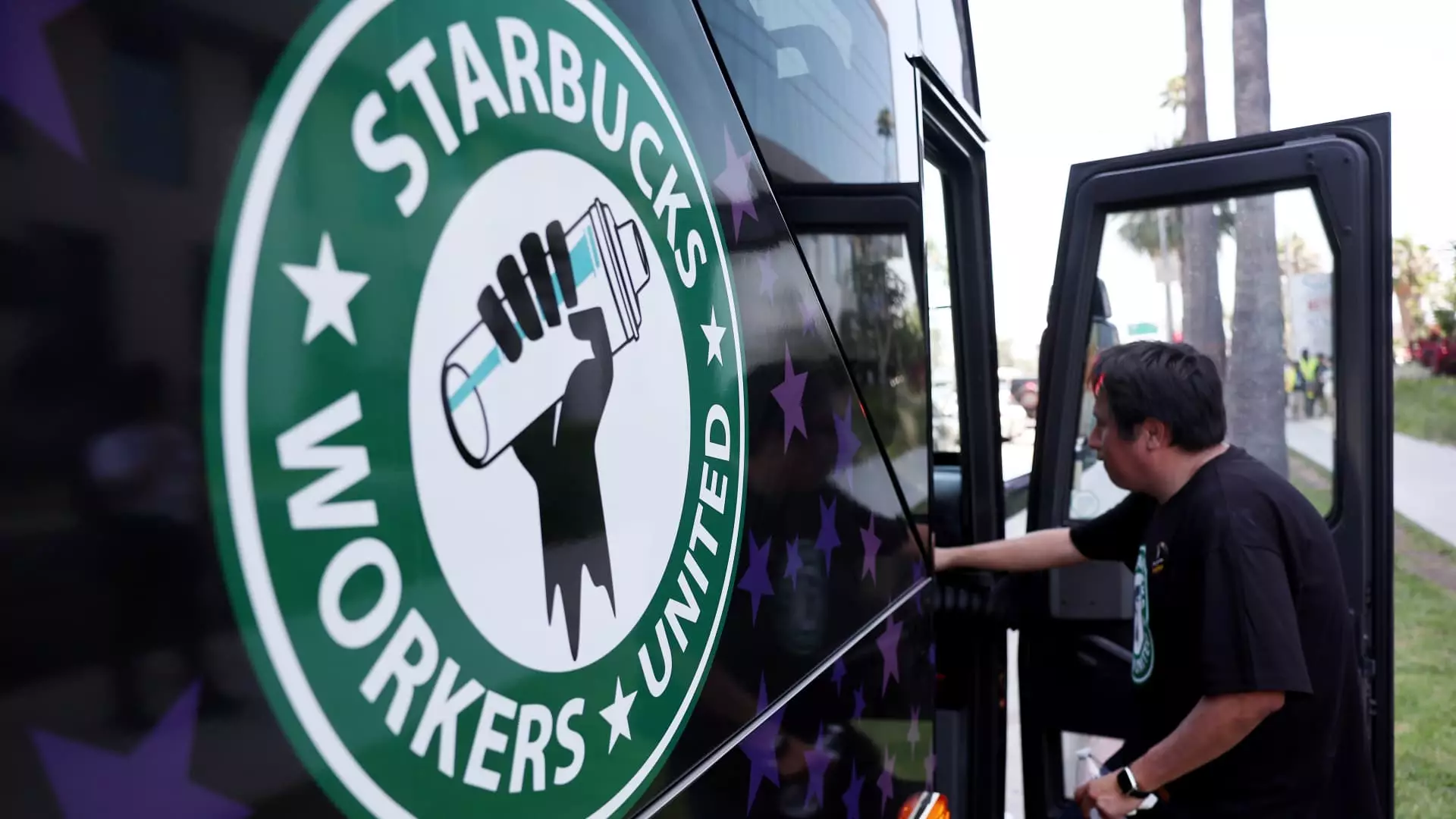In a significant move signaling rising tensions, Starbucks Workers United announced that an overwhelming 98% of union baristas voted to authorize a strike in a quest for a fair contract with the coffee powerhouse. This development underscores a pivotal moment in labor relations as negotiations gear up for what stakeholders hope will be a “foundational framework.” As the bargaining delegates prepare for the final scheduled session of the year, the stakes have never been higher for both parties involved.
The arduous negotiations between Starbucks and Workers United reflect a year marked by thousands of hours dedicated to discussions and countless tentative agreements. Despite apparent attempts to broker peace, grievances persist. Hundreds of unresolved unfair labor practice cases loom over the proceedings, with the union’s claim that Starbucks has yet to present a comprehensive compensation package for its baristas. In contrast, Starbucks asserts that they have engaged earnestly in negotiations, citing their attendance at over eight multi-day meetings where thirty meaningful agreements were reached on key issues.
This labor unrest highlights a critical clash of objectives. Starbucks maintains that the union’s assertion of an impending strike is premature and counterproductive to their ongoing negotiations, which the company describes as “extremely productive.” The theme of miscommunication permeates the situation, with both sides seemingly misunderstanding each other’s perspectives. The union argues that urgent matters such as pay and benefits remain unaddressed, while Starbucks emphasizes their commitment to finding a resolution.
Starbucks’ journey with the unionization movement is rife with challenges. Since the initial union elections took place in Buffalo three years ago, over 500 company-owned Starbucks locations have voted to unionize under Workers United. This marks a significant shift from the company’s initial resistance, which led to widespread backlash and even congressional scrutiny. The ongoing saga demonstrates a transformation in labor dynamics and a growing willingness among employees to advocate for their rights in the workplace.
As the strike authorization looms, the response from Starbucks’ management remains crucial. New CEO Brian Niccol has pledged to approach negotiations with integrity, illustrating a potential shift in corporate strategy. In a recent announcement, he also introduced a plan to double paid parental leave, aiming to enhance employee benefits. However, this gesture is complicated by reported reductions in annual pay hikes, primarily due to declining sales at U.S. locations.
As the impending negotiations unfold, it is evident that Starbucks and Workers United stand at a crossroads. The potential for a strike could reshape the landscape of labor relations not only within the company but for the wider gig economy, as it highlights the growing clout of organized labor amidst corporate maneuverings. The coming weeks will be critical in determining whether both sides can find common ground or if the fractures will widen into a full-blown labor struggle.

